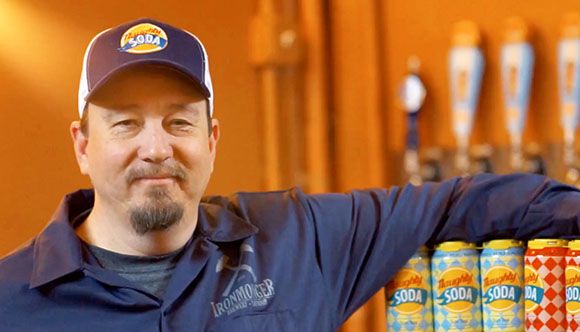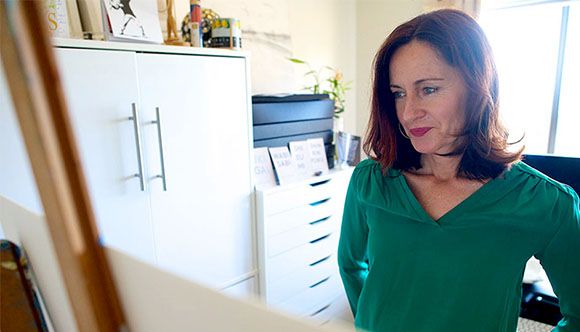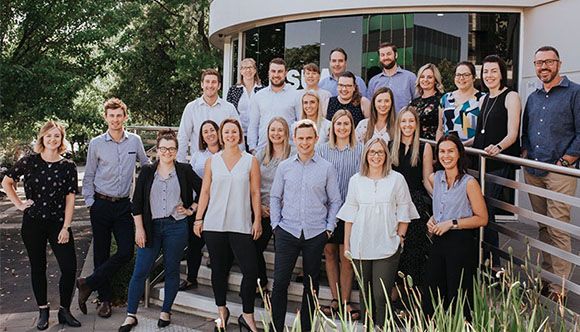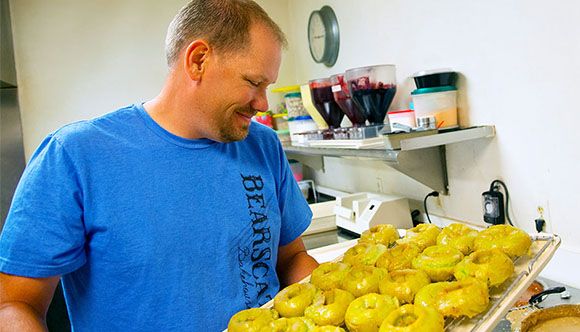Amy Wells: Arable Brewing Company

Background
Arable Brewing Company is a craft brewery located in Eugene, Oregon, founded by Amy Wells, her husband Cam, and their friend Chris Archer. All three came from backgrounds in the brewing industry, with Chris as a head brewer, Cam specializing in facilities and equipment, and Amy managing finances. The trio had long dreamed of opening their own brewery, leveraging their combined experience in brewing, operations, and customer experience.
“That was our push, to decide are we going to go for it, or just keep talking about it for another ten years?”
Amy Wells
Co-Owner, Arable Brewing Company
Problem
As the team transitioned from employees to entrepreneurs, they faced several challenges. They needed to create a comprehensive business plan to secure funding and navigate the regulatory requirements of starting a brewery. The team also struggled to find a suitable location, with two potential opportunities falling through — one due to the COVID-19 pandemic and another due to insufficient infrastructure. Additionally, they needed to adapt their plans as circumstances changed, including pivoting their location strategy and adjusting their financial projections for different scenarios.

Solution
The Arable Brewing team turned to LivePlan to create and refine their business plan. Its user-friendly interface and comprehensive resources, including examples and how-to guides, made the process less intimidating. LivePlan's Forecast tool allowed Amy to visualize the impact of different financial scenarios, helping the team adapt their plan as they faced setbacks and changes. The team also leveraged LivePlan's AI-powered business plan writing tools to hone in on what would make their business stand out. They worked closely with LivePlan's advisors and writers to fine-tune their plan, improving its presentation and readability.
Outcome
Using LivePlan, Arable Brewing Company successfully created a robust business plan that helped them navigate the challenges of starting their brewery. The plan's flexibility allowed them to pivot when initial location plans fell through, eventually leading them to secure a larger space in Eugene that fit their budget and growth potential. The comprehensive nature of their LivePlan-created business plan also helped them launch a successful crowdfunding campaign. Arable Brewing opened its doors in 2023, with Amy as CFO managing marketing, sales, and bookkeeping, Cam as CEO focusing on process engineering and facilities management, and Chris leading brewing operations. Amy credits LivePlan with making the business planning process less intimidating and providing a valuable tool for ongoing business management. She plans to use LivePlan as they continue to grow and seek additional financing.
Related Articles

Funding
Connecting QuickBooks and LivePlan helps David always be ready to pitch to investors

Growth
Clear and intuitive planning helps Ann track and maintain her goals for selling art

Advisors
LivePlan helps Ipsum Advisors deliver more effective advising services

Funding
See how Kevin created a plan to secure funding and track financials for his bakery
Try LivePlan Today
Totally risk free. 35-day money-back guarantee.


